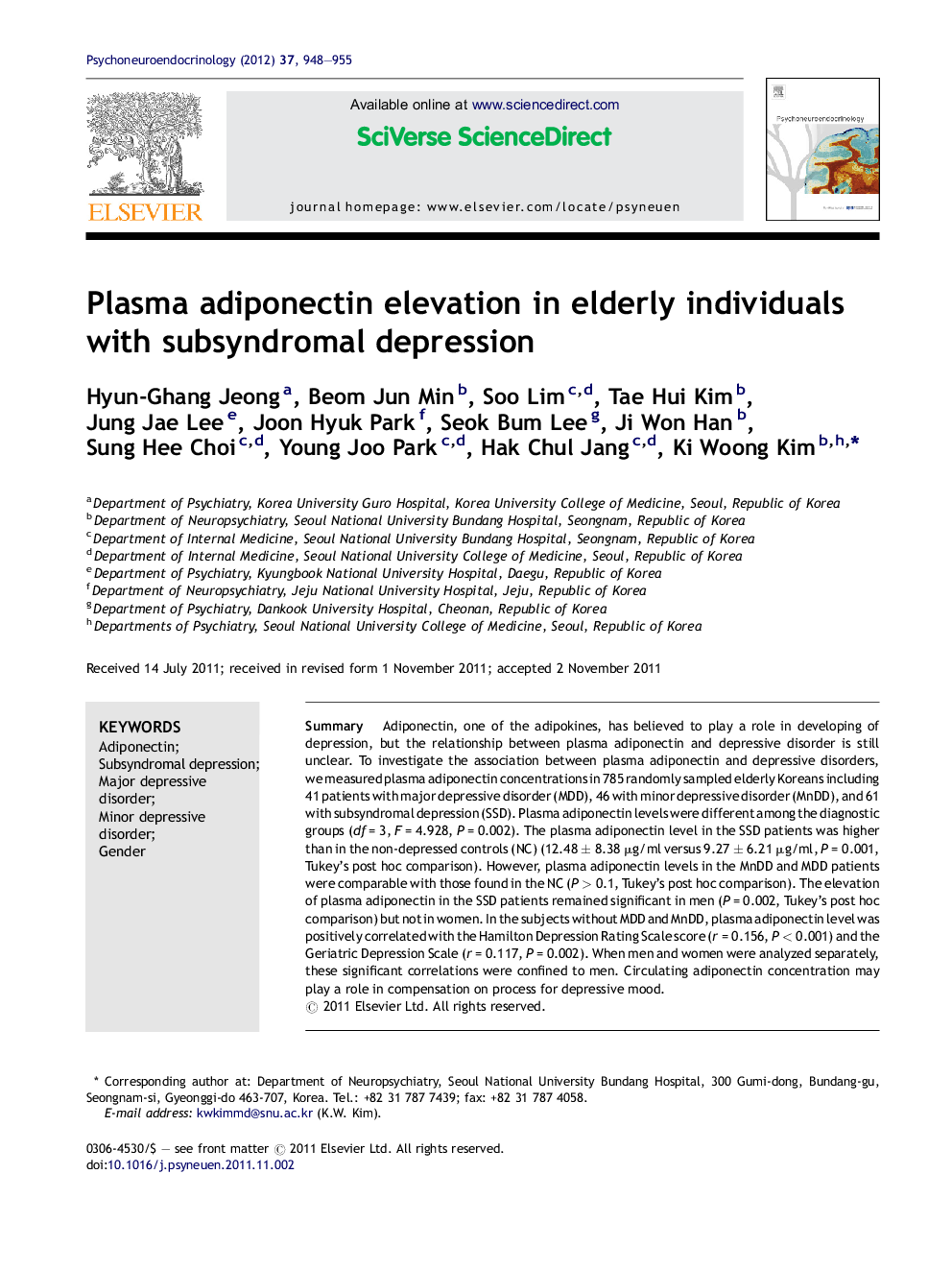| Article ID | Journal | Published Year | Pages | File Type |
|---|---|---|---|---|
| 10306884 | Psychoneuroendocrinology | 2012 | 8 Pages |
Abstract
Adiponectin, one of the adipokines, has believed to play a role in developing of depression, but the relationship between plasma adiponectin and depressive disorder is still unclear. To investigate the association between plasma adiponectin and depressive disorders, we measured plasma adiponectin concentrations in 785 randomly sampled elderly Koreans including 41 patients with major depressive disorder (MDD), 46 with minor depressive disorder (MnDD), and 61 with subsyndromal depression (SSD). Plasma adiponectin levels were different among the diagnostic groups (df = 3, F = 4.928, P = 0.002). The plasma adiponectin level in the SSD patients was higher than in the non-depressed controls (NC) (12.48 ± 8.38 μg/ml versus 9.27 ± 6.21 μg/ml, P = 0.001, Tukey's post hoc comparison). However, plasma adiponectin levels in the MnDD and MDD patients were comparable with those found in the NC (P > 0.1, Tukey's post hoc comparison). The elevation of plasma adiponectin in the SSD patients remained significant in men (P = 0.002, Tukey's post hoc comparison) but not in women. In the subjects without MDD and MnDD, plasma adiponectin level was positively correlated with the Hamilton Depression Rating Scale score (r = 0.156, P < 0.001) and the Geriatric Depression Scale (r = 0.117, P = 0.002). When men and women were analyzed separately, these significant correlations were confined to men. Circulating adiponectin concentration may play a role in compensation on process for depressive mood.
Related Topics
Life Sciences
Biochemistry, Genetics and Molecular Biology
Endocrinology
Authors
Hyun-Ghang Jeong, Beom Jun Min, Soo Lim, Tae Hui Kim, Jung Jae Lee, Joon Hyuk Park, Seok Bum Lee, Ji Won Han, Sung Hee Choi, Young Joo Park, Hak Chul Jang, Ki Woong Kim,
